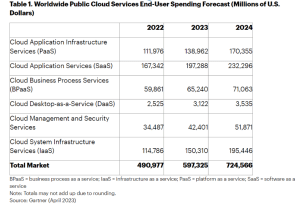Introduction
Data is frequently referred to as the new oil in the digital age. And cloud technologies are essential to contemporary corporate operations. As companies around the globe transition their data and applications to the cloud, these services’ economic impact and strategic importance have skyrocketed. Today, approximately 60% of global corporate data resides in cloud storage—a figure anticipated to balloon to 200 ZB by 2025. With cloud providers generating nearly $178 billion in annual revenues, understanding how to manage these costs effectively is not just advisable; it’s imperative.

What is Cloud Cost Optimization?
Cloud cost optimization is the strategic process of reducing your total cloud spending by identifying mismanaged resources, eliminating waste, reserving capacity for higher discounts, and right-sizing computing services to scale. We aim to ensure that we fully utilize the resources spent on cloud services. And it should contribute to the organization’s operational efficiency and business outcomes.
How to Optimize Cloud Costs: A Step-by-Step Guide?
- Identify Underutilized Resources: Begin by auditing your cloud usage to spot resources that are paid for but rarely used. Tools like AWS Trusted Advisor or Azure Advisor can help identify these inefficiencies
.
- Implement Auto-Scaling:Auto-scaling services adjust your resource usage based on actual needs, not forecasts. This means you only pay for the computing power you use, scaling up during peak times and down during lulls.
- Choose the Right Pricing Model: Cloud providers offer pricing models like pay-as-you-go, reserved instances, and spot instances. Analyze your usage patterns and select the model that provides the best cost for your specific needs.
- Leverage Heatmaps: Heatmaps show your computing demand’s peaks and troughs. Using this data, you can schedule jobs during off-peak hours, significantly reducing costs.
- Manage and Allocate Costs: Implementing a showback or chargeback model can help departments understand their cloud spending and encourage them to use resources more efficiently.
Best Practices for Cloud Cost Management
Regular Audits and Monitoring: Continuously monitor and review your cloud spend. Use cloud management tools that provide insights and alerts about your cloud consumption patterns.
Adopt a Multi-Cloud Strategy: Avoid vendor lock-in and use different pricing models and technologies by spreading your services across multiple cloud providers.
Optimize Data Storage: Different data types can be stored more economically on different storage services. Assess your data storage needs and match them with the most cost-effective storage solutions.
Improve Cloud Governance: Establish clear policies for the provisioning, using, and decommissioning of cloud resources. Good governance helps in avoiding unnecessary costs due to sprawl and orphaned resources.
Skill Up Your Team: Ensure your team is well-versed in cloud management best practices. Invest in training and certifications for cloud services, which can empower your team to make smarter usage decisions.
Conclusion
As cloud technology evolves and businesses migrate online, effective cloud cost management becomes more critical. Companies can enjoy robust cloud infrastructure without overspending by implementing the above steps and adhering to best practices. Optimizing your cloud expenditure is about cutting costs and enhancing your company’s agility and operational efficiency.



